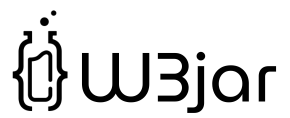Difference Between Single and Double Quotes in PHP
In PHP, single quotes (' ') and double quotes (" ") are used for string literals, but they have some key differences in how they handle variables and escape sequences:
Single Quotes (' '):
-
Literal Strings: When you use single quotes, PHP treats the string as a literal. This means that no variable parsing or escape sequences (except for
\\and\') are processed inside the string.$name = 'World'; echo 'Hello, $name'; // Outputs: Hello, $nameIn this example,
$nameis not parsed as a variable but is treated as plain text. -
Escape Sequences: The only escape sequences recognized inside single-quoted strings are
\\(for a backslash) and\'(for a single quote).echo 'It\'s a beautiful day!'; // Outputs: It's a beautiful day!
Double Quotes (" "):
-
Variable Parsing: In double-quoted strings, PHP parses variables within the string and replaces them with their values.
$name = 'World'; echo "Hello, $name"; // Outputs: Hello, WorldHere,
$nameis parsed and replaced with its value. -
Escape Sequences: Double-quoted strings recognize a wider range of escape sequences, including:
\"(for a double quote)\\(for a backslash)\n(for a newline)\t(for a tab)\r(for a carriage return)\$(for a dollar sign)
echo "She said, \"Hello!\""; // Outputs: She said, "Hello!"
Performance Considerations
- Single-quoted strings are slightly faster to process because PHP does not need to check for variables or interpret escape sequences (other than
\\and\'). - For strings that include variables or require special escape sequences, double quotes are more appropriate.
Summary
- Single Quotes (
' '): Treats the content as a literal string; limited escape sequences; variables are not parsed. - Double Quotes (
" "): Parses variables and recognizes a wider range of escape sequences; slightly slower due to additional processing.
Choosing between single and double quotes often depends on whether you need variable interpolation or special escape sequences within your string.
